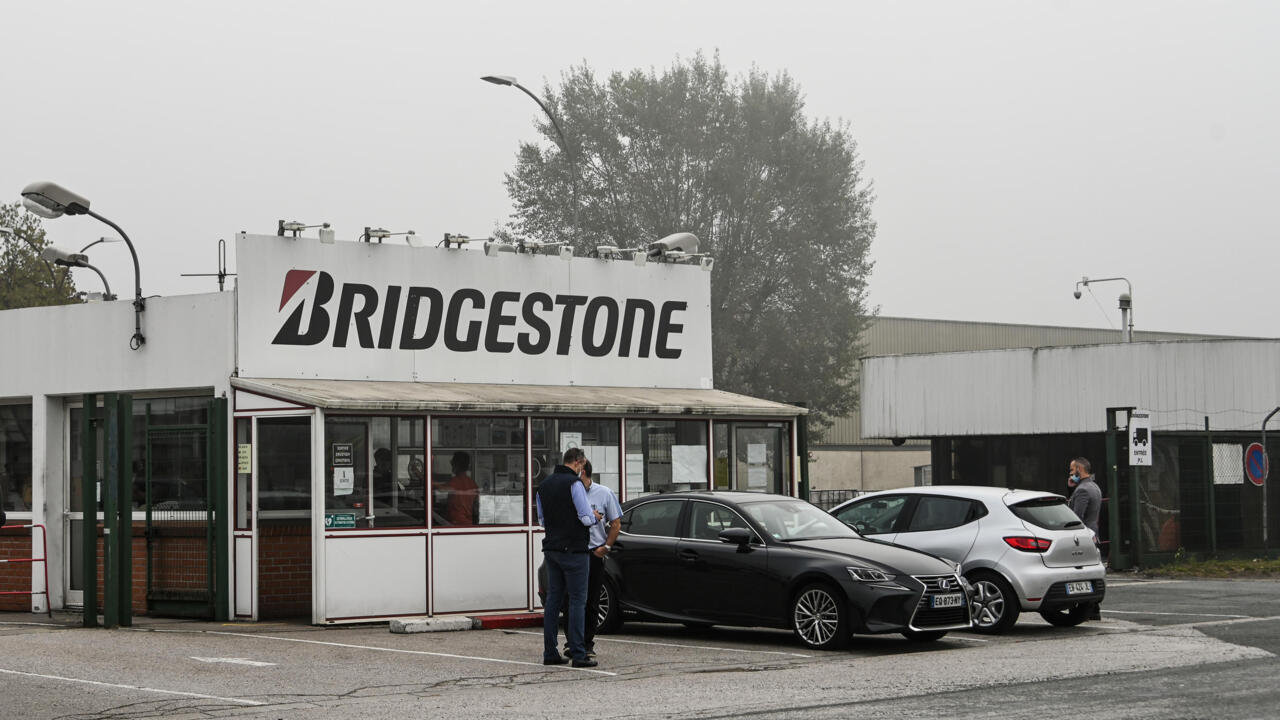Bethune (France) (AFP)
Japanese manufacturer Bridgestone has decided to permanently close its Béthune (Pas-de-Calais) plant which employs 863 people in the manufacture of car tires, another big blow for Hauts-de-France after the closure in recent years. , Continental sites in the Oise and Goodyear sites in Amiens.
"Structural market problems are leading us to take structural measures to preserve the viability of the company's operations," Laurent Dartoux, president and CEO of Bridgestone Europe, Africa and the Middle East, told AFP.
The closure of this factory "is a project that we do not take lightly," he said.
Citing excess production capacity in Europe and competition from low-cost Asian brands, the group claims to want to limit the number of layoffs as much as possible through early retirement measures, internal or external reclassification of employees and the search for a buyer to the site.
Bridgestone specifies in a press release that it informed employees on Wednesday morning that it was considering "the total and final cessation of the activity of the Bethune plant", during an extraordinary meeting of the social and economic committee.
The closure could take place from the "second quarter of 2021".
The government and the president of the region Xavier Bertrand immediately jointly denounced the "brutality" of this announcement.
"They contest the brutality, the relevance and the foundations" and "ask the company to open up and analyze in detail all the alternative scenarios to the closure of the site", they declared in a joint statement.
On site, in the vast industrial zone located on the outskirts of the town of the Mining Basin, the silhouette of the factory hardly emerged from the fog in the morning, trucks entering and leaving the site regularly, AFP noted.
For those who have just heard the news, it's a cold shower.
"We were thinking of a reorganization but not of a closure!", Comments soberly Christophe Bouttmy, South Chemistry union representative, outside the room where the CSE is held.
For one of his colleagues, wearing a red Bridgestone-branded polo shirt, "we had known him for years, but when we asked if something was going on, they said no ..."
In the parking lot, an employee of the canteen, who has worked on the site for 30 years.
"just learned of the closure on the radio".
- "Least efficient" factory -
Bridgestone says it is "fully aware of the social consequences of such a project and undertakes to implement all the means necessary to define a support plan adapted to each employee".
Reclassifications could in particular be considered in the group's sales and distribution activities, which employ 3,500 people in France.
This announcement comes nearly a year after the decision of French competitor Michelin to close its tire plant in La Roche-sur-Yon (Vendée) which employed 619 employees and its site in Bamberg, Germany (858 employees).
The Continental group also announced on Tuesday the closure of its tire factory in Aachen (Germany, 1,800 jobs).
As for the Hauts-de-France region, it has already been severely affected by the closure of two major tire manufacturing sites - Continental in Clairoix in the Oise (683 employees in 2010) and Goodyear in Amiens-Nord (1,143 employees in 2014) - and each of them gave rise to a strong union mobilization and led to lengthy legal proceedings.
The Japanese manufacturer, which claims the world's leading position in the tire market, promises "a sustained dialogue with employee representatives" and "an ambitious revitalization plan for employment" in the region.
The Béthune plant, which produces automotive tires under the Bridgestone and Firestone brands, has been experiencing difficulties for a long time.
It is "the least efficient" among the ten factories of the group in Europe, says management.
In a decade, its workforce has fallen by 40%, at the same rate as its production volumes in a stable market.
Like Michelin last year, Bridgestone invokes increasingly strong competition from low-cost Asian brands, especially Chinese.
He estimates that their market share increased from 6% to 25% between 2000 and 2018.
The health crisis has not helped.
The European automotive market fell by nearly 40% in the first half of the year and is expected to remain down 25% over the year 2020, hit by the consequences of the Covid-19 pandemic.
aro-bj-rl-frd / sp
© 2020 AFP

